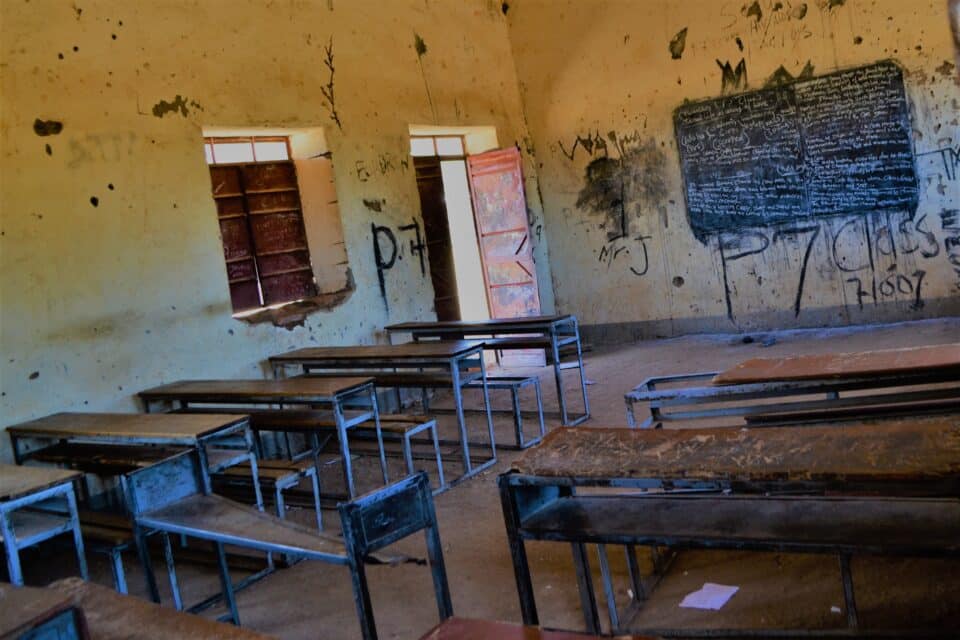Help our local partners realise their vision of hope for their communities

At HART we pride ourselves on working with local partners and using their testimonies to drive our aid and advocacy initiatives. Below are some examples of the testimonies we heard on our last trip to Sudan in January about the need for education in the recently liberated Blue Nile region.
Samuel John, a village elder in Chali el Fil, emphasises the lack of equipment in schools. He told us:
“The schools in the area have no books, no trained teachers, no blackboard, chalk or supplies. There is also no food at school so the children that do go to school often end up leaving halfway through to search for food.”
Here, Samuel John tells us not only are supplies and facilities lacking, but hunger and the search for food are forcing children out of the classroom.
Moreover, Unan Saman, Secretary of Information for Blue Nile, revealed that in his opinion, “the biggest problem in these areas is illiteracy as there are no trained teachers. Children are just scattered all day playing in the bush as there is no school for them to go to.”
The lack of trained teachers across Sudan is a massive challenge and continues to contribute to large numbers of Sudanese children missing out on education.
Hayat, a local resident of Chali el Fil, shared the same concerns. She told us, “we need hospitals here and school materials. Sometimes three children share one exercise book.”
Malik Agar, Chief of Defence for SPLM-North in the Blue Nile Region, spoke to us about the impact of limited access to education, saying:
“We have two illiterate generations in Sudan. How are we supposed to address this? Much needs to change. Children in camps will have to learn a different curriculum (deleted comma) when they return to Sudan. The availability of trained teachers is a huge issue that will go on for many years. Those few that are trained now need to be retrained which is difficult due to a lack of food and water. Training teachers and health workers will be the top priority in the post- peace era.”
He too expressed his frustration at the unavailability of trained teachers. He shed light on the issue of teachers being displaced and becoming unfamiliar with curricula or falling out of practice as education professionals.
These testimonies helped HART to better understand the situation in Sudan and how a lack of teachers, resources and schools are affecting the youth. It also helped us to understand the views of local people and their community leaders to assess how they thought the situation could be improved.
It is clear that Sudan is in desperate need of more teachers. Teachers across the country have been displaced, forced to move schools and sometimes stop teaching entirely. Furthermore, schools are desperate for resources and facilities, particularly within the ‘Two Areas’ of Sudan and struggle with pupil retention due to hunger and issues with hygiene. These issues, presented to us by local Sudanese people, can be solved. We believe that by supporting local ideas, projects and communities, we can help address challenges such as teacher training, teacher retention and pupil retention as well as a fundamental lack of resources.
If you wish to support HART’s educational initiatives in Sudan, please follow the link https://www.hart-uk.org/donate/
By Max Elgot